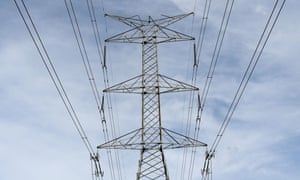Some of Australia’s highest solar takeup is occurring in the
electorates of some of the Coalition’s strongest coal supporters, new
analysis shows
Australia’s biggest energy and business groups have banded together
to urge the government to abandon its “big stick” approach to energy
legislation, warning the divestiture powers the government craves will
impede investment and create genuine sovereign risk.
Scott Morrison and Angus Taylor threatened to break up Australia’s energy companies if power prices didn’t come down – by utilising commonwealth divestment powers never used before in Australia – through legislation due to be introduced to parliament this week.
The proposal, labelled an “extreme measure” by the energy sector, had already created waves in the Coalition party room, with dissenters uncomfortable with the prospect of such a dramatic market intervention.
The move has prompted the Australian Energy Council, Australian Industry Group, the Business Council of Australia and others to join together to appeal to the government to abandon its plans, which it says will “specifically discourage badly needed investment in the energy sector”.
“The signatories to this statement are robustly opposed to the
creation of unilateral divestment powers for the treasurer. Such
discretionary and quasi-judicial powers represent deep and genuine
sovereign risk,” the open letter to the government reads.Scott Morrison and Angus Taylor threatened to break up Australia’s energy companies if power prices didn’t come down – by utilising commonwealth divestment powers never used before in Australia – through legislation due to be introduced to parliament this week.
The proposal, labelled an “extreme measure” by the energy sector, had already created waves in the Coalition party room, with dissenters uncomfortable with the prospect of such a dramatic market intervention.
The move has prompted the Australian Energy Council, Australian Industry Group, the Business Council of Australia and others to join together to appeal to the government to abandon its plans, which it says will “specifically discourage badly needed investment in the energy sector”.
“They are inconsistent with best practice for a modern economy, such as Australia’s, and were specifically considered and rejected by the ACCC and the Harper competition policy review.
“If enacted, these powers would cast a pall over investment in all sectors of the Australian economy and threaten the economic attractiveness of a country highly reliant on foreign investment.”
The industry and business groups said the proposed law would undermine the long-term interests of consumers and was “a dangerous precedent”.
“Driving down prices for any market requires investment. Investors require clear, stable and predictable rules so that they have the necessary confidence to make those investment decisions,” the group said.
“This legislation will only lead to increased investment uncertainty and prices.
“We urge the government to abandon the bill and work with the business community on reform options which enhance Australia’s economic stability, encourage investment and deliver better outcomes for consumers.”
One of those options – renewables – marked a recent milestone, with the Clean Energy Council reporting two million homes had taken up solar rooftop power.
Analysis of the postcodes with the biggest solar inclusion revealed some of the Coalition’s strongest coal supporters had the highest renewable takeup in their electorates, underscoring the Morrison government’s energy challenge ahead of the next election.
Queensland, named by conservatives as the the most likely home for a floated new coal-fired power station, had the biggest takeup, with 30% of sunshine state homeowners installing solar panels.
Four of the top five solar pickup postcodes sit in Queensland, with Bundaberg coming in at number one, followed by Mandurah in Western Australia, Hervey Bay, Caloundra and Toowoomba.
All five electorates are held by conservative Coalition MPs: Keith Pitt, Andrew Hastie, Llew O’Brien, Andrew Wallace and John McVeigh.
The conservative faction of the Liberal party room all but ended Malcolm Turnbull’s tenure as leader of the government by undermining the proposed national energy guarantee power policy.
The Clean Energy Council said the new solar milestone and the obvious embrace of renewables by Australian households made the government’s position on energy perplexing.
“What the milestone says to me, is there are two million households out there who think the future should be a renewable energy one, and they are prepared to put their money where their mouth is,” the Clean Energy Council chief executive, Kane Thornton, said.
“There is no clearer demonstration that people are embracing renewable energies than that, and that they expect their government to do the same.
“Some people are just out of step with those community concerns and whether they have it plain wrong – and the reality is, that once upon a time, renewables were expensive, but they are not any more – so whether it is some misunderstand that new reality or wilfully ignore it, they do that at their own risk, and at risk at the ballot box.”

No comments:
Post a Comment